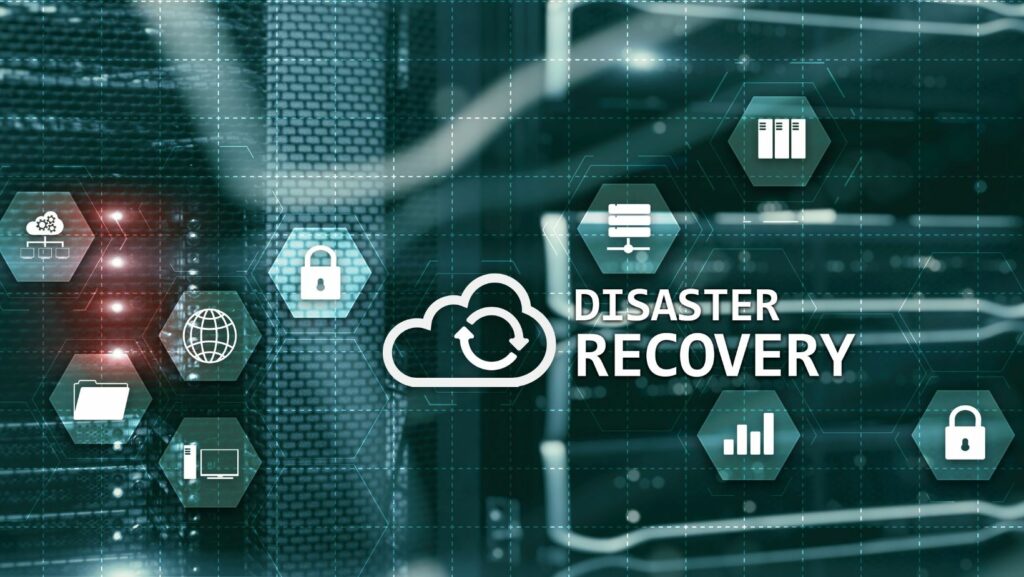Key Takeaways
- Importance of Data Protection: With the increasing threats of cyberattacks and natural disasters, enterprise cloud backup solutions are essential for safeguarding critical business data.
- Key Features: Look for automated backups, strong encryption, scalability, effective disaster recovery, and compliance with regulations in any cloud backup solution.
- Scalability and Flexibility: Enterprise solutions allow businesses to easily adjust their storage capacity based on growth, ensuring they only pay for what they use.
- Security Measures: Robust security protocols, including encryption and multi-factor authentication, are crucial for protecting sensitive information from unauthorized access.
- Cost-Effectiveness: Cloud backup solutions can reduce overall costs by minimizing the need for physical infrastructure and enabling pay-as-you-go models, thus enhancing operational efficiency.
- Implementation Best Practices: Assess organizational data needs, choose a reputable provider, and regularly update strategies to ensure the most effective data protection.
In today’s digital landscape, businesses face an ever-growing threat to their data. From cyberattacks to natural disasters, the need for reliable data protection is more critical than ever. Enterprise cloud backup solutions have emerged as a robust answer, offering scalable options that adapt to the unique needs of organizations.
These solutions not only safeguard sensitive information but also ensure seamless recovery in the event of data loss. As companies increasingly shift to cloud-based infrastructures, understanding the various options available can empower them to make informed decisions. With the right enterprise cloud backup solution, businesses can enhance their resilience and maintain continuity in an unpredictable world.
Enterprise Cloud Backup Solutions
 Enterprise cloud backup solutions provide organizations with a secure and scalable method for protecting critical data. These solutions utilize cloud technology to store data offsite, offering advantages such as remote access, reduced hardware costs, and increased storage capacity.
Enterprise cloud backup solutions provide organizations with a secure and scalable method for protecting critical data. These solutions utilize cloud technology to store data offsite, offering advantages such as remote access, reduced hardware costs, and increased storage capacity.
Key features of enterprise cloud backup solutions include:
- Automated Backups: Regular backups occur automatically, minimizing the risk of data loss due to human error.
- Encryption: Data is encrypted during transmission and storage, ensuring confidentiality.
- Scalability: Organizations can easily adapt storage capacities to meet evolving data needs, supporting business growth.
- Disaster Recovery: Quick restoration processes allow for the rapid retrieval of data in case of ransomware attacks or natural disasters.
- Compliance: Solutions often adhere to regulatory standards, helping businesses avoid legal penalties.
Many enterprise cloud backup solutions offer hybrid models, combining on-premises storage with cloud capabilities. This approach provides flexible management and optimal recovery options. Overall, these solutions play a vital role in enhancing organizational resilience and operational stability in an ever-changing digital landscape.
Key Features of Enterprise Cloud Backup Solutions
Enterprise cloud backup solutions offer essential functionalities that protect critical data from loss. These features ensure businesses can adapt to changing needs while maintaining data security and cost efficiency.
Scalability
Scalability stands out as a crucial feature of enterprise cloud backup solutions. Organizations can increase or decrease their storage capacity based on data growth. Solutions scale easily to accommodate expanding data sets, allowing for seamless upgrades without significant downtime or disruption. This flexibility ensures companies pay only for the storage they use, optimizing resource allocation as data requirements evolve.
Security Options
Security options play a vital role in enterprise cloud backup solutions. Robust encryption protocols safeguard data both during transfer and at rest. Multi-factor authentication adds an additional layer of protection against unauthorized access. Data integrity checks routinely verify the accuracy and consistency of stored data. These measures build confidence in the backup process, ensuring that sensitive information remains secure from cyber threats and unauthorized disclosures.
Cost-Effectiveness
Cost-effectiveness remains a significant advantage of enterprise cloud backup solutions. By utilizing pay-as-you-go models, organizations minimize upfront investment and ongoing operational costs. Companies avoid the expenses associated with maintaining physical data centers, including hardware, maintenance, power, and cooling costs. Additionally, efficient backup solutions reduce downtime during data recovery, further contributing to overall cost savings by enhancing operational efficiency.
Best Practices for Implementing Enterprise Cloud Backup Solutions
Effective implementation of enterprise cloud backup solutions involves careful planning and consideration of specific organizational needs. Following best practices ensures robust data protection and efficient recovery processes.
Assessing Business Needs
Assess business data requirements by identifying critical data types, storage volume, and compliance regulations. Understand the recovery time objectives (RTO) and recovery point objectives (RPO) necessary for operational continuity. Analyze existing infrastructures to determine integration capabilities with new cloud solutions. Evaluate potential risks from cyber threats or natural disasters to prioritize backup strategies that align with organizational priorities. Regularly reassess these needs to stay updated on changes in business operations or data growth.
recovery time objectives (RTO) and recovery point objectives (RPO) necessary for operational continuity. Analyze existing infrastructures to determine integration capabilities with new cloud solutions. Evaluate potential risks from cyber threats or natural disasters to prioritize backup strategies that align with organizational priorities. Regularly reassess these needs to stay updated on changes in business operations or data growth.
Choosing the Right Provider
Choose a reliable provider by evaluating their security features, including encryption levels, multi-factor authentication, and access controls. Assess the provider’s compliance with industry standards and regulations relevant to the organization, such as GDPR or HIPAA. Review service level agreements (SLAs) for data recovery time and customer support responsiveness. Compare pricing structures to find a solution that balances features with budget constraints. Consider vendor reputation through reviews and testimonials from existing customers. Engaging with providers during the decision-making process can yield insights into their capabilities and adaptability to business needs.
Adopting enterprise cloud backup solutions is crucial for businesses aiming to protect their data in a volatile digital landscape. With features like automated backups and robust security measures, these solutions not only enhance data protection but also ensure quick recovery when needed. Organizations can benefit from the scalability these solutions offer, allowing them to adapt to growing data needs without disruption. By carefully selecting a provider that meets specific requirements and compliance standards, businesses can bolster their resilience and maintain operational continuity. Ultimately, investing in a reliable cloud backup strategy is a proactive step toward safeguarding vital information against potential threats.



